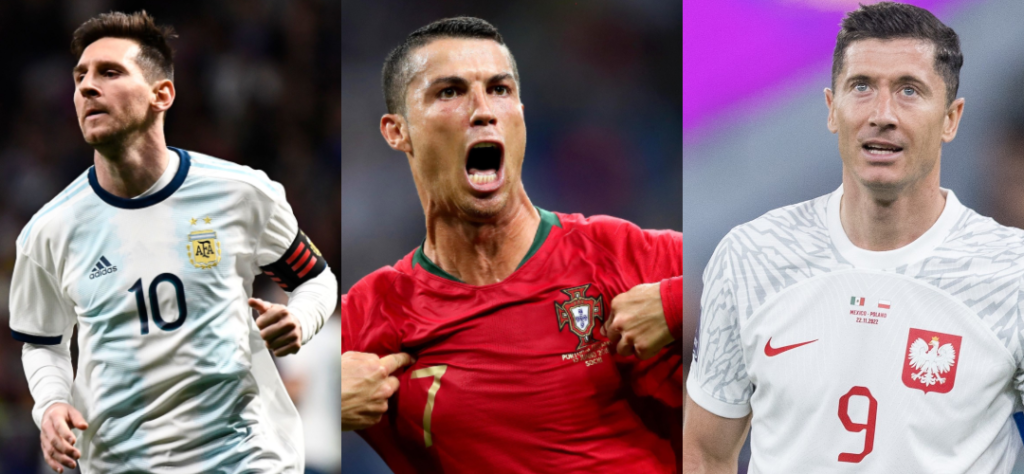
What’s the real difference between a great player and a true ‘world-class’ legend? We all know one when we see one, but what is it? It’s not just about a high transfer fee, one viral skill, or a single hot streak of form.
Many players have a good season; very few achieve genuine greatness.
So, what does it really mean to be “world-class”? It’s a title that’s thrown around too easily, but it should be reserved for the elite. In this post, we’ll explore the 5 essential qualities that separate the legends from the temporary stars.
1. Consistency (The 3-Season Rule)
When it comes to football, consistency is the vital quality that separates good players from great ones. The best players in the world don’t just have one or two standout performances; they consistently perform at a high level, week in and week out.
It’s like ordering your favorite suya. Sure, the mai suya might have made it perfectly one time, but if they can’t replicate that same level of perfection every time you go, what’s the point? It’s the same with football. A player who can’t consistently perform might have the occasional moment of brilliance, but they won’t be considered world-class.
This isn’t just about performing well; it’s also about availability. A player who is constantly injured is like that unreliable friend who always cancels plans. You might forgive them once or twice, but you can’t build a team around them.
- The World-Class Example: Look at Lionel Messi. For over two decades, he has been one of the most consistent players in the world, consistently scoring goals, creating chances, and winning matches.
- The ‘What If’ Examples: On the other hand, you have players with immense talent who can’t sustain it. Think of Paul Pogba, Adriano, or Mario Balotelli. Their flashes of genius were unforgettable, but they lacked the relentless consistency.
The Rule: If a player wants to be considered world-class, they need to perform at that elite level for at least 3 straight seasons. It’s not enough to be a one-season wonder.
2. Technical Ability
Technical ability is a player’s skill and control over the ball. This is non-negotiable, but it looks different in every position. Too often, we only praise the technical skills of attackers.
For Attackers & Midfielders:
This is what we most commonly see:
- Dribbling: The ability to ghost past defenders in one-on-one situations, like Ronaldinho, Neymar, Hazard, Taarabt, or Jay-Jay Okocha.
- Passing: The vision to make accurate, game-changing passes. Think of the perfect cross-field balls from Paul Scholes, the defense-splitting through-balls from Kevin De Bruyne, or the sheer artistry of Mesut Özil.
- Shooting: The power and precision to score consistently. This is the realm of Cristiano Ronaldo or Wayne Rooney.
This is why Thierry Henry, with his blend of pace, dribbling, and finishing, was considered world-class, while a pure poacher like Ruud van Nistelrooy, though a great goal-scorer, was seen as more of a specialist.
For Defenders:
A defender’s technical ability is about control and prevention.
- Tackling: The timing and precision to win the ball cleanly, a skill mastered by players like Fabio Cannavaro or Nemanja Vidić.
- Positioning & Interception: The intelligence to read the play and stop an attack before it starts. The legendary Paolo Maldini famously said, “If I have to make a tackle, then I have already made a mistake.”
- Ball-Playing: In the modern game, a defender like Virgil van Dijk must also be able to pass accurately under pressure.
For Goalkeepers:
A world-class keeper’s technique extends far beyond just saves.
- Shot-Stopping & Reflexes: The core ability to make unbelievable saves, like Iker Casillas in his prime.
- Distribution: The technical skill to launch a counter-attack with a single kick or throw, a trait revolutionized by Manuel Neuer and perfected by Alisson and Ederson.
- Command of the Area: The ability to control the box, claim crosses, and organize the defense.
3. Tactical Intelligence (Football IQ)
Tactical intelligence is the football IQ that separates every player on the pitch. It’s the ability to read the game, make quick decisions, and adjust to the ever-changing conditions.
- Midfield Maestros: The best examples are often playmakers. Andrea Pirlo, the Italian maestro, was a chess master, always thinking several moves ahead. Xavi Hernandez was the brain of Barcelona’s tiki-taka, understanding space and time better than anyone.
- Defensive Geniuses: This intelligence is just as crucial for defenders. Paolo Maldini and Franco Baresi built careers on tactical genius. Their brilliance wasn’t just in tackling; it was in never having to tackle because their positioning was flawless.
- Intelligent Forwards: A forward like Thomas Müller isn’t the fastest or most skillful, but his “Raumdeuter” (space investigator) role shows an elite understanding of where to be and when to be there.
4. Impact on Team Success (The ‘Big Game’ Player)
A world-class footballer makes their team win. They don’t just compile stats on a losing side; they are the reason for the success. They lead their teams to victories and inspire their teammates.
This isn’t just about wearing the captain’s armband. It’s about work rate, leadership, and making game-changing contributions when it matters most.
This is why I’d always consider Carlos Tevez a world-class player and hesitate to put Sergio Aguero in the same bracket. Aguero was a phenomenal goal-scorer, but Tevez’s relentless work rate and warrior spirit dragged his team to success.
The ultimate example? Didier Drogba. Was he as technically gifted as Nicolas Anelka? Maybe not. But Drogba was a big-game animal, a leader who single-handedly won finals for Chelsea. That is a world-class impact.
5. Recognition as One of the Best (The Proof)
Finally, a world-class player knows they are world-class, and so does everyone else. This is proven by recognition from peers, coaches, journalists, and fans.
The most objective measure is individual awards.
- The Ballon d’Or: Perhaps the most prestigious award, recognizing the best player in the world over the year.
- The Best FIFA Men’s Player: The official award from football’s governing body.
- League Awards: Consistent recognition in your domestic league is vital, such as the PFA Player of the Year in England or being named in the League Team of the Season year after year.
Winning these awards, or even consistently placing in the top 10, cements a player’s status. It’s the world’s stamp of approval on everything else: their consistency, skill, intelligence, and impact.
Being a world-class footballer takes more than just raw talent. It takes:
- Consistency (for 3+ seasons)
- Technical Ability (relevant to their position)
- Tactical Intelligence (a high football IQ)
- Impact (making the team win)
- Recognition (proven by top-tier awards)
These five qualities are what set the elite apart. It’s a combination that few achieve, but for those who do, it guarantees them a place in football history.
Related Opinions
Bruno’s Game Is Hurting United’s No. 9s
EPL Match Day 10 Preview & Predictions
Today's Daily 1.5 Odds
Morocco U20 Triumph Signals a New Era of Dominance
Facebook Comments
If you have a Facebook, you can easily drop your comment on this opinion
About Author


